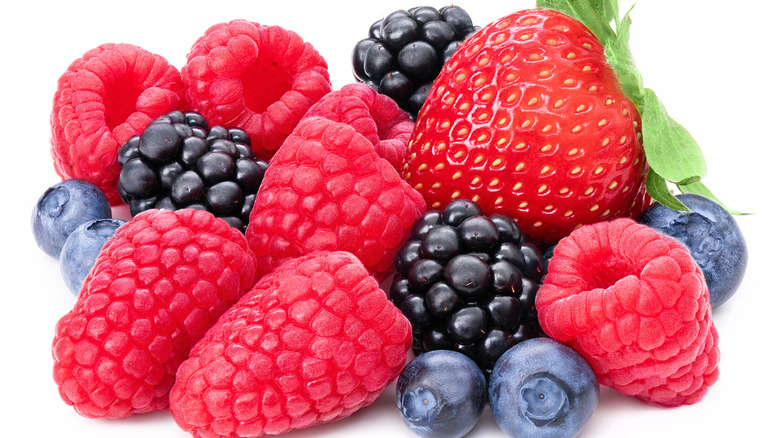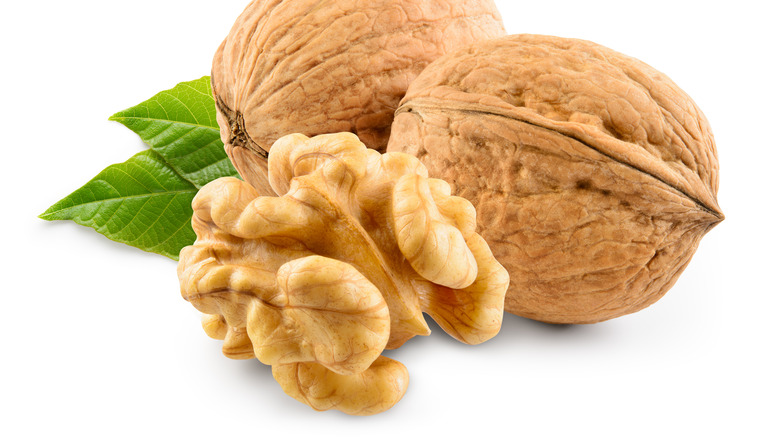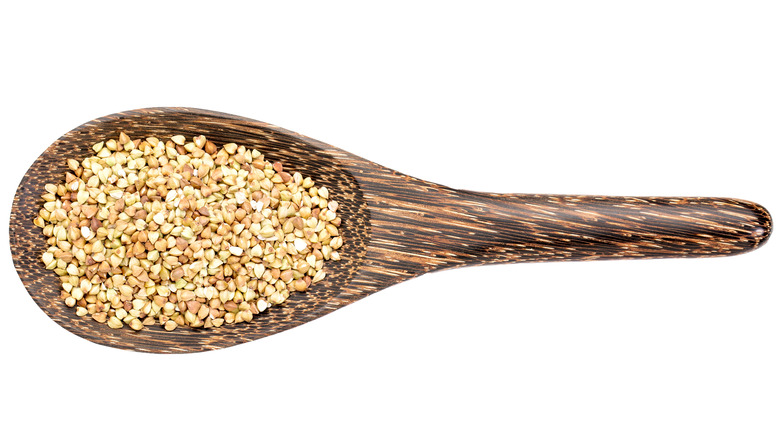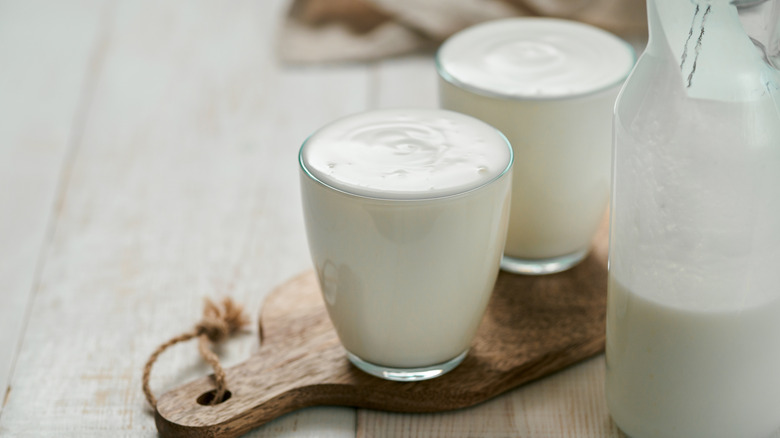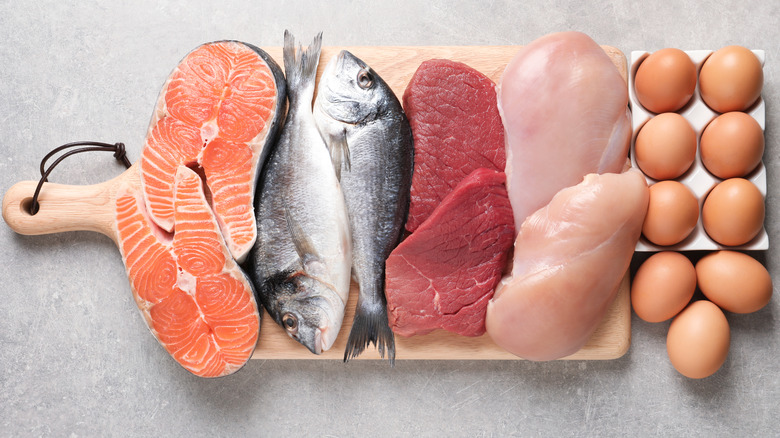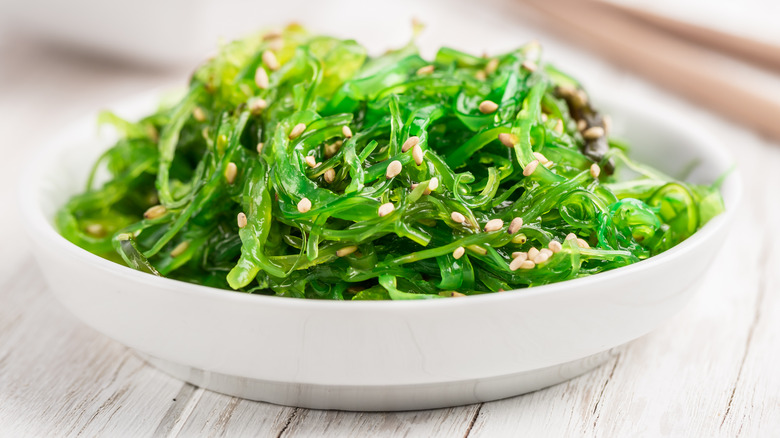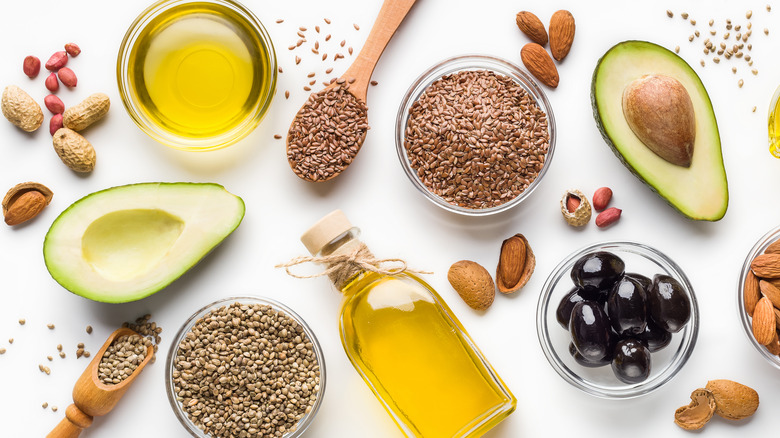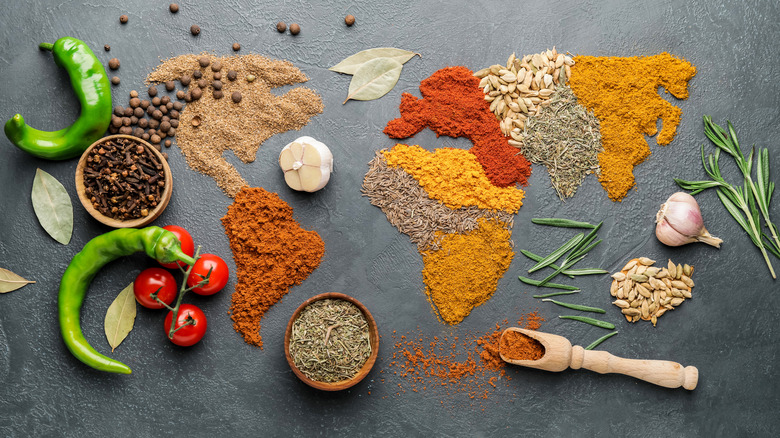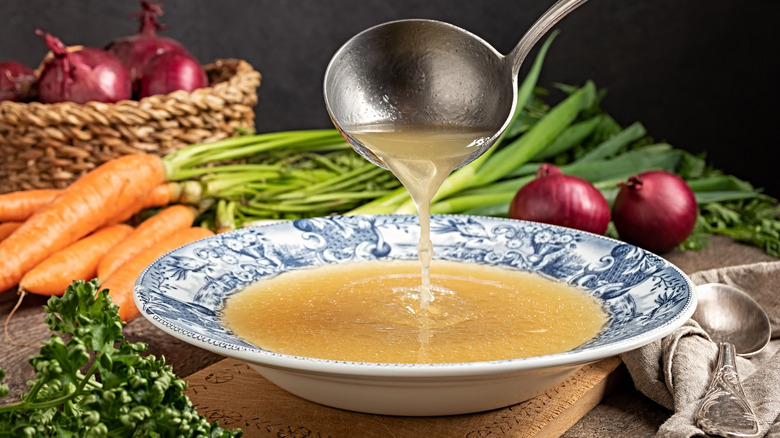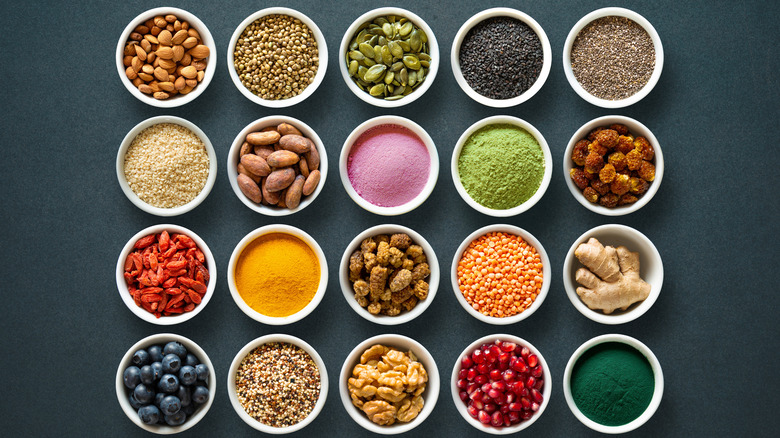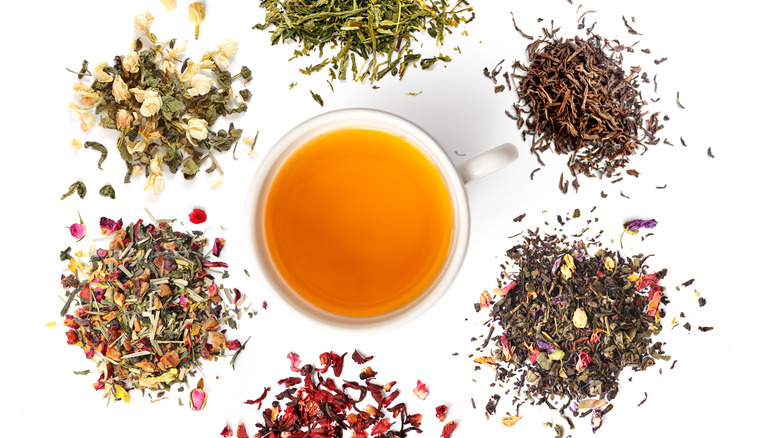These Are The Absolute Healthiest Foods You Can Buy
It's no secret that a healthy diet provides many benefits, from a lower risk of heart disease to more energy, or simply better sleep. But with so much conflicting information out there, and diet trends that seem to change every year, it is easy to feel overwhelmed when faced with all the choices at the grocery store. Should you eat organic? Is gluten-free better for you? Should you be vegan or paleo? The way around all this confusion is to start by incorporating some of the healthiest foods you can buy that are both good for you and affordable.
Instead of following fad diets, or counting your macronutrients and calories every day, you can start by eating a diet low in processed foods, and high in the following ingredients. They have all been shown over and over again in scientific studies to provide the most bang for your buck while also tasting delicious. And lucky for you, we have also included ideas to incorporate them into your breakfast, lunch, dinner, and snacks.
Antioxidant-rich fruits and vegetables
When we think of healthy foods, fruits and vegetables are usually at the top of the list, and for good reason. Aside from their vitamin, mineral, and fiber content, they are also rich in antioxidants, substances that help protect against cancer, heart disease, and more. When we eat several servings a day, and try to vary nutrient content by selecting foods by color, we are laying a pretty good foundation to our dietary intake.
In fact, according to a 2019 article from the food science journal Critical Reviews in Food Science and Nutrition, foods like broccoli, kale, cabbage, oranges, lemons, blackberries, and cherries, all contribute to a lower risk of chronic disease while a 2009 study suggested that low levels of vitamin A and C were associated with higher risks of asthma.
To eat more of these foods, try squeezing fresh orange juice for breakfast, snacking on berries or a strawberry banana and spinach smoothie, and adding some steamed broccoli or garlicky kale to your lunch and dinner. Getting them in season or at farmers markets will also help lower your grocery bill.
Omega-3 rich nuts and seeds
Omega 3 fatty acids are mentioned more and more in the news because of the many exciting studies being conducted on their impact on heart and brain health. They have been found to reduce inflammation in the body by a Biochemical Society study (via National Library of Medicine), slow the progression of dementia and other brain disorders, and improve cognitive function, according to studies published in the peer-reviewed journal of human nutrition Nutrients. But you don't have to eat fish to increase your intake of those essential fatty acids. Many nuts and seeds are omega 3 rich while also being vegan, gluten-free, and inexpensive.
To eat more omega 3 rich nuts and seeds, try sprinkling your salads with hemp seeds, stir a tablespoon of ground flax seeds in your morning oatmeal, or pack some walnuts to snack while you're on the go. At the store, look for ready-made chia puddings, prepackaged nuts, and superfood snacks which often contain a mix of flax seeds, chia seeds, and various types of nuts. Because nuts and seeds keep well in the freezer for several months, don't hesitate to buy them in bulk for a discount to use over the course of a season.
Easy to digest fiber rich pseudograins
It's a known fact that modern diets are lower in fiber than they should be, but many good sources of fiber include gluten-containing grains that not everyone can digest (via Vox). Enter pseudograins, the nutritional superstars that are not only gluten-free, they can also improve digestion while providing the gut biome with prebiotics and probiotics (via National Library or Medicine). If you've ever had quinoa, then you've had pseudograins before. The Paleo Foundation lists other pseudograins including buckwheat, amaranth, and wild rice. If you like them, now is the time to keep including them in your menu, as they have been found to lower the risk of cancer, cardiovascular diseases, and diabetes according to the academic journal Molecular Nutrition and Food Research, and improve brain neural functions based on the results of a 2010 study.
Simply add some cooked wild rice to your salmon dish, toss cooked quinoa with chopped mango and black beans and a drizzle of olive oil and vinegar, and swap some or all of the flour in your pancake recipe with buckwheat flour.
Probiotics-rich cultured foods
An ancestral food group that is making a comeback, cultured and fermented foods are increasingly promoted for better gut health. You have probably heard about yogurt, kefir, kimchi, kombucha, and their benefits, which range from better digestion to a stronger immune system, and even lower rates of depression. Eating cultured foods is now easier than ever, since gone are the days when you had to make your own sauerkraut to get the real deal (shelf stable pasteurized sauerkraut does not offer the same benefits) and had to hunt down kombucha cultures to brew it at home.
Creamy, spicy, bubbly, or just plain tasty, fermented foods can be anything you want them to be, while also helping to lower your blood pressure, protect against viral infections according to Molecular Nutrition and Food Research, and lower your risk of anxiety and depression according to the journal Neuroscience and Biobehavioral Reviews. Try adding kimchi to your grain bowls, spooning kefir into your smoothies (or even ice pops), or swapping juice for kombucha!
Protein-rich and sustainable fish, eggs, and meats
Not all proteins are created equally, but the latest studies do show that a diet consisting of sustainable sources of protein can improve muscle mass and strength, especially in the elderly, lower the risk of cancer, and keep you full longer, therefore, making it easier to lose weight, according to journals from the National Libary of Medicine. And while some may cite rising costs of food as an obstacle to eating more quality protein, it does not have to be that way. Eggs and sardines, for example, can fulfill nearly half of your daily protein needs for less than $5.
To add more quality protein to your diet, try adding an omelet and green salad on your menu rotation, introducing tinned fish to your lunches, or making a quick dinner of baked salmon and roasted broccoli. You can also take advantage of the many subscription services that deliver food to your door, which can help with encouraging you to plan your menus in advance, therefore reducing food waste.
Mineral-rich sea vegetables
You might not be familiar with sea vegetables other than the popular nori snacks, but seaweeds are becoming increasingly easy to find, and provide an incredible mineral punch in a tiny package. Their iodine content alone makes them a great addition to your diet. Try sprinkling your eggs with kelp granules, or adding chopped kelp or dulse strips in your salads, and of course, don't forget toasted nori strips on top of your Buddha bowls or bibimbaps. Not only can seaweed add a welcome saltiness to your meals without a lot of sodium depending on the type, but it also provides a wealth of surprising health benefits.
Sea vegetables have been found to have antiviral, anticoagulant, and anticancer properties according to the journal Nutrition, improve digestive health due to their soluble fiber content according to Advances in Food and Nutrition Research, and prevent growth retardation and cretinism in children when consumed by the pregnant mother. Of this entire list, sea vegetables might be the ones you are least familiar with, but they are sure to quickly become a family favorite. You can find them in small co-ops as well as bigger natural food chains, usually near the snacks and kale chips.
Nutrient-dense minimally processed oils
Back in the fat-free craze, people were encouraged to either ditch fats altogether, or to at least mitigate the damage by using canola, cottonseed, and soybean oil. But research ended up showing the dramatic negative impact that refined vegetable oils and trans fats have on health. Especially on cardiovascular diseases, breast cancer, disorders of nervous system and vision in infants, cancer, and diabetes, as reported by a 2011 study published in the peer-reviewed Journal of Food Science and Technology.
By comparison, the medium-chain triglycerides found in coconut oil were shown to improve brain function by a 2004 study published in the peer-reviewed journal Neurobiology of Aging. Hemp seed oil was found to lower oxidative stress by a 2021 study published in the peer-reviewed international journal Antioxidants, olive oil was repeatedly proven to be anti-inflammatory and antioxidant nutrient in a recent study published in the journal Endocrine Metabolic Immune Disorders-Drug Targets.
If you are looking to include more of those healthier oils in your diet, you can replace your cooking oils with avocado oil, which has a very high smoke and burn point, use extra virgin olive oils in your salads, use coconut oil for stir-fry dishes or experiment with coconut milk. Coconut oil also makes for a great moisturizer and a good alternative to shaving cream.
Health-boosting spices
If you've been reading any of the healthy food magazines out there, you've probably seen turmeric mentioned a few times. In fact, many spices are becoming more prominent in recipes as studies are showing more and more that they are not just tasty and colorful, but they have powerful health-boosting properties as well.
You only have to look up turmeric (or its active compound curcumin) in medical journals to be overwhelmed by the evidence out there. This includes everything from reducing blood clots (from a 1999 study published in Biochemical Pharmacology) to reducing signs of depression (from a 2014 study published in Phytotherapy Research), fighting off inflammation (from a 2014 study published in Oncogene), and much more.
A 2019 study published in Biomedicine & Pharmacotherapy showed the antioxidant, anti-inflammatory, anti-atherogenic, anti-apoptotic, anti-hypertensive, and hypolipidemic effects of saffron. Furthermore, a 2019 study published in the peer-reviewed Clinical Nutrition reported that cinnamon had a positive impact on the blood sugar levels of individuals with type II diabetes.
Using spices is fun and easy once you decide to do it. Add half a teaspoon of turmeric and some black pepper to your pot of rice at the same time as the water (or cook it in ghee for a few minutes before adding the water), choose brands of chai with a variety of organic spices, sprinkle some cinnamon on your oatmeal, or look up Middle Eastern, Persian, and Indian dishes, which often showcase spices like saffron, cumin, coriander, and more.
Bone broth
Some refer to chicken soup as Jewish penicillin, as it has been repeatedly shown to alleviate the symptoms of upper respiratory infections, even in the newest studies including one published in 2020 in CHEST, the peer-reviewed journal of the American College of Chest Physicians. A 2018 study published in Current Medical Research and Opinion showed that the consumption of collagen hydrolysate which is abundant in bone broth reduced joint pain in athletes, while a 2013 study showed an improvement in skin elasticity, skin moisture, and skin roughness after oral supplementation of collagen.
To add bone broth to your diet, look no further than soups. Instead of using water or dubious bouillon cubes, simply make your own broth, or look for high-quality bone broths you can find in the frozen and refrigerated sections of well-stocked supermarkets. Or, go even further and have a glass of hot broth in the morning instead of coffee like Kylie Jenner, Gwyneth Paltrow, Shailene Woodley, and Salma Hayek.
Superfoods
Superfoods are thought to have more of what's good for you than regular ingredients. Blueberries are high in antioxidants, but acai berries are higher, while acerola cherries are higher in vitamin C than oranges. The list goes on. This is important information because many studies point to the health benefits of consuming enough antioxidants and other nutrients to fight off diseases. A 2020 study published in the peer-reviewed journal Antioxidants showed that vitamin C shows promise in preventing cancer in smokers, both vitamin C and E reduced the risk of recurrence of breast cancer, and antioxidants, in general, promote healthy cell and tissue repair.
To add more superfoods to your diet, try soaking goji berries in green tea, or adding them to your morning granola, sneak a little spirulina or chlorella powder into your smoothies, stir some cacao powder into your protein shake or coffee, and grab some golden berries instead of raisins every once in a while.
Herbs and teas
If you are needing to amp up your hydration, or get bored of only drinking water throughout the day, you will love this easy hack that will also boost your diet with added nutrition and health benefits. We're talking about adding teas, infusions, and medicinal herbs to your diet!
A 2014 study published in the peer-reviewed journal Biofactors reported that the polyphenols like the ones in green tea provided important protective effects against cardiovascular and neurodegenerative diseases. A 2015 study published in the International Journal of Environmental Research and Public Health showed that honeybush tea had an impressive positive impact on bone formation and resorption, and green tea, honeybush tea, and rooibos tea inhibited the proliferation of cancer cells as reported by a 2016 study published in the peer-reviewed journal Molecules. And you might not be surprised to read that a 2016 study published in the peer-reviewed journal Nutrients showed that ginger and garlic provide "anticancer effects in the digestive system, indicating these spices might be a healthy dietary means to prevent cancer directly."

